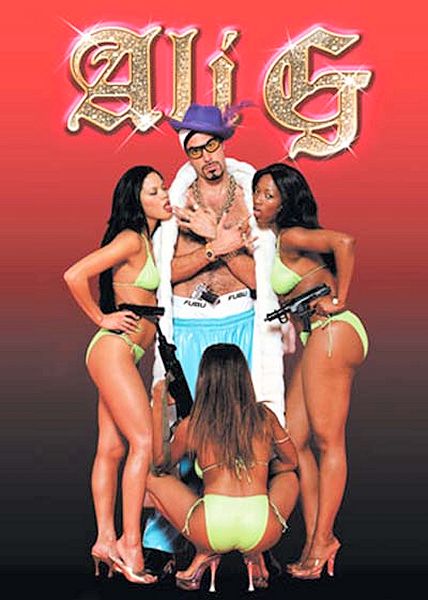
Genuine Authentic Gangsta Flava
For over a century, the Western world has looked beyond the Anglo-Dutch Protestant work ethic for a good time, and has turned to the communities we now call African American for the latest ways to get its groove on. Notable among those cultures has been the Ashkenazi Jewish community. Of course, the Jewish community had its own schismatic good-time-boys - the Hasidim - but they did not appeal to many American and European Jews. Instead, in the twentieth century, many Jews turned to the streams of Jazz, soul, and hip-hop, that were gradually flowing out from centres such as New Orleans, Chicago, and South-Central L.A. to the wider (whiter) world. From Al Jolson to Danny Hoch, there have been plenty of young Jews who think they are black. True dat, boychik.
A few months ago in Zeek I discussed some of the effects of a similar identification in my article on Marshall Mathers Jr, better known by his rap persona of Eminem. In Eminem's case, I claimed that race issues have been used to cover up the complicated issues of class, and that Eminem's seemingly paradoxical ascent had a lot to do with this confusion. This month I want to take issue with race again, but in a different way. Rather than talking about Marshall Mathers Jr, who identifies with his working class African American colleagues, and who enters with all seriousness into an art form they have created, I will be analyzing someone who identifies himself with those nebbishes who recognize the vitality of the hip hop culture but have neither the verve, the intelligence, the talent, or the style to enter into its lifestyle: the Ashkenazic-Jewish Sacha Baron Cohen, better known by his comic persona of Ali G.
In the interests of full disclosure I should say that I am a friend of Sacha as well as an occasional writer and researcher for the Ali G franchise. While I'm at it I'd like to say that in the old country my family lived in the same shtetl as Al Jolson's family. The Jolsons were the cantors; my family were probably committee members, although I have no reliable information about it. I also own two Beastie Boy albums. So, while the following analysis relies on nothing but shows that have been seen on national television, I have had the benefit of knowing Sacha over the past few years and seeing some of the obtuseness of the mainstream media in its reporting of celebrities.
Who is Ali G? Ali G is a wannabe hip-hop character who asks profoundly stupid interview questions to authority figures and celebrities, who are often unaware that the setup is a joke. In part, Ali G is a classic buffoon ("What is the smallest thing? Is it a salt?" he asks). But there are two more interesting aspects of the specific humour of Ali G interviews. The first is the total lack of connection of most people in authority (whether mainstream or oppositional) to youth culture. In most cases, the situation that arises in an interview derives its humour from Ali G either talking in a way that the interviewee doesn't understand ("Do you believe you should be caned at school?") or from forcing the interviewee to answer profoundly stupid questions ("Do you think we should bomb Russia now that it is weak?"). The former can come across as somewhat mean-spirited, but the latter can occasionally force public figures and officials to justify their beliefs from a level so basic that assumptions (for example about the definitions of race, or about the appropriateness of women serving on juries) are brought out for scrutiny.



Zeek in Print
Buy your copy today
Germanophobia
Michael Shurkin
The Red-Green
Alliance
Dave Hyde
The Art of
Enlightenment
Jay Michaelson
yom kippur
Sara Seinberg
Josh Plays the Sitar
Josh Ring
Genuine Authentic
Gangsta Flava
dan friedman
saddies
David Stromberg
about zeek
archive
links